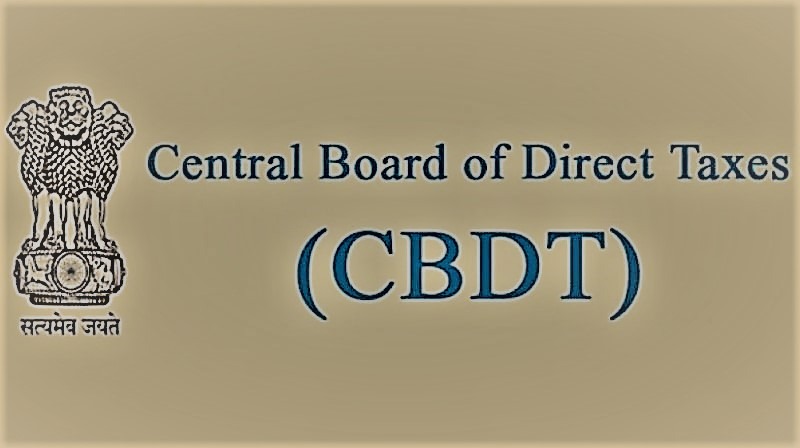CBDT requires reporting of high-value transactions by June 30. Analysis of investor and industry impact.
Source and citation: Shukla, Anuradha. “Report All High-Value Transactions of FY23 by June 30: CBDT.” The Economic Times, 17 Apr. 2024.
TLDR:
- CBDT asks self-reporting organisations (SROs) to file details of high-value transactions for FY23 by June 30
- Around 6,000 reporting entities have not filed or provided incomplete/incorrect information
- Transactions above ₹50 lakh, share purchase/sale above ₹10 lakh, and post office deposits/withdrawals of ₹5 lakh and above must be reported
- Large banks and mutual fund houses are compliant, but regional banks, post offices, and registry offices sometimes miss deadlines

Analysis for a layman:
The Central Board of Direct Taxes (CBDT), the apex body for direct tax administration in India, has instructed self-reporting organisations (SROs) such as banks, post offices, co-operatives, fintechs, and mutual fund houses to submit details of all high-value transactions carried out in the financial year 2022-23 by June 30. According to income tax rules, transactions above ₹50 lakh, share purchases and sales above ₹10 lakh, and post office deposits and withdrawals of ₹5 lakh and above must be reported to the director of income tax (intelligence and criminal investigation) through Form 61A.
Impact on Retail Investors:
- Increased scrutiny of high-value transactions may lead to more transparent financial reporting
- Investors should ensure that their financial transactions are properly reported by their respective SROs
- Timely reporting can help investors avoid potential inquiries or investigations by tax authorities
- Retail investors should maintain accurate records of their investments and transactions for tax purposes
- The move may discourage investors from engaging in unaccounted or illicit financial activities
Impact on Industries:
- Financial institutions, including banks, post offices, and mutual fund houses, will need to ensure timely and accurate reporting of high-value transactions
- Increased compliance burden may lead to additional costs for financial institutions in terms of manpower and technology upgrades
- Fintechs and other digital financial services providers will need to adapt their systems to meet the reporting requirements
- The real estate sector may face increased scrutiny due to the reporting of high-value property transactions
- Companies with significant high-value transactions may face more stringent audits and regulatory checks
Long Term Benefits & Negatives:
Benefits:
- Enhanced financial transparency and better tax compliance across industries
- Reduced scope for money laundering and other illicit financial activities
- Improved data collection and analysis for tax authorities, aiding in policy-making and enforcement
Negatives:
- Increased compliance costs for financial institutions and other reporting entities
- Potential for data privacy concerns and the need for robust data protection measures
- Risk of over-regulation and administrative burdens on businesses
Short Term Benefits & Negatives:
Benefits:
- Immediate improvement in the reporting of high-value transactions for FY23
- Increased awareness among investors and businesses about their reporting obligations
- Potential short-term revenue gains for the government through better tax compliance
Negatives:
- Possible delays or technical issues faced by reporting entities in meeting the June 30 deadline
- Short-term disruptions in financial operations due to the need for system updates and staff training
- Potential for increased tax inquiries or investigations in the near term, causing apprehension among investors and businesses
Companies Potentially Affected by CBDT’s Reporting Requirement
Indian Companies Potentially Impacted:
- Non-Compliant Self-Reporting Organizations (SROs): The article mentions around 6,000 SROs, including banks (especially regional banks), post offices, co-operative societies, fintech companies, and mutual fund houses that have not filed information or provided incomplete/incorrect information. These SROs could face:
- Increased Scrutiny: The CBDT is nudging its field formations to ensure compliance. This could lead to increased scrutiny of these SROs by tax authorities.
- Potential Penalties: Non-compliance with Form 61A filing can lead to penalties.
Indian Companies Not Likely Affected:
- Compliant SROs: Companies that are already compliant with the high-value transaction reporting requirements are not directly impacted.
Global Companies Not Likely Affected:
- The article focuses on Indian SROs and domestic regulations.
Overall Market Sentiment:
The news could have a negative impact on the reputation of non-compliant SROs, especially if they are found to be deliberately avoiding reporting requirements. For compliant companies, there is no direct impact.
Important Note: This analysis is based on the information provided in the news article and general industry trends. Investors should conduct their own research before making any investment decisions.